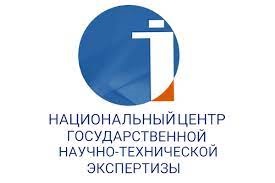Multi-faceted Character of “Method” Concept in the Context of Foreign Language Acquisition
https://doi.org/10.55491/2411-6076-2025-2-102-110
Abstract
This article presents new insights into the conceptual interpretation of the term “method” in its application to the process of foreign language acquisition. The gap in this concept’s field-specific content has been revealed based on the comprehensive analysis of the “method” term understanding and utilization in language-related research fields. The authors analyze the linguistic, pedagogical, methodological, and socio-cultural aspects of “method” in their general abstract understanding and describe their content and the specific contribution of each aspect of communication in a foreign language classroom. The article presents the principles for implementing the above aspects, with special attention paid to the principle of truth, as a necessary condition of foreign language acquisition process leading to real learning. Also, from the previously established connection in linguistics between language and thinking, the authors derived the concept of a subject’s attachment to their native language, resulting in the need to observe and preserve the connection between the mother tongue and the foreign language being studied through educational activities related to translation. Therefore, the article provides an account of the four conceptual aspects of the term “method” used in research, focusing on how language is acquired, learned, and taught, as well as their general characteristics and implications. Describing these aspects’ semantic content in the context of foreign language acquisition, as well as the proposed principles of their realization, allows a deeper understanding of the “method” term’s field-specific meaning.
About the Authors
K. MyachinKazakhstan
Konstantin Myachin, сandidate of philological sciences, associate professor
Petropavlovsk
I. Olkova
Kazakhstan
Irina Olkova, сandidate of philological sciences, associate professor
Petropavlovsk
D. Spulber
Italy
Diana Spulber, Doctor of Science in Psychology, Doctor of Philosophy (PhD), Professor
Genoa
References
1. Babaii, E., Permyakova, T.M., Pozdeeva, E.V. (2021) Strategies in performing a multi-level C-test: Applying thinkaloud protocols. Vestnik Tomskogo Gosudarstvennogo Universiteta Filologiya – Tomsk State University Journal of Philology, 73, 5-17. https://doi.org/10.17223/19986645/73/1 (in English)
2. Cherkasova, G.A., Karaulov, Y.N., Filippovich, Y.N. (2011) Lingvokul'turnoe soznanie russkoj jazykovoj lichnosti: Modelirovanie sostoyanija i funkcionirovanija. Voprosy psiholingvistiki, 2011. №13. [Cherkasova, G.A., Karaulov, Y.N., Filippovich, Y.N. (2011) Linguocultural consciousness of the Russian language personality: Modeling the state and functioning. Questions of psycholinguistics. №13.] (in Russian)
3. Davies, M. (2008) The Corpus of Contemporary American English. English Corpora website. (in English)
4. Gal`skova, N.D., Gez, N.I. (2004) Teorija obuchenija inostrannym jazykam: Lingvodidaktika i metodika. Moskva: Izdatel`skij centr «Аkademija», 336 s. [Galskova, N.D., Gez, N.I. (2004) Theory of foreign language teaching: Linguodidactics and methodology. Moscow: «Akademiya» Publishing Center, 336 p.] (in Russian)
5. Google Ngram Viewer. (n.d.). Google Books. (in English)
6. Karasik, V.I., Prohvacheva, O.G., Zubkova, Ya.V., Grabarova, E.V. (2005) Inaja mental'nost'. Moskva: Gnozis, 352 s. [Karasik, V.I., Prokhvacheva, O.G., Zubkova, Ya.V., Grabarova, E.V. (2005) Another mentality. Moscow: Gnozis, 352 p.] (in Russian)
7. Kobozeva, I.M. (2004) Lingvisticheskaja semantika. Moskva: Editorial URSS, 352 s. [Kobozeva, I.M. (2004) Linguistic semantics. Moscow: Editorial URSS. 352 р.] (in Russian)
8. Kumaravadivelu, B. (1994) The postmethod condition: Emerging strategies for second/foreign language teaching. TESOL Quarterly, 28(1), P. 27-48. (in English)
9. Lurija, A.R. (2020) Jazyk i soznanie. St. Petersburg: Piter, 336 s. [Luria, A.R. (2020) Language and consciousness. St. Petersburg: Piter, 336 p.] (in Russian)
10. Merriam-Webster. (2025) Method. Retrieved February 7, 2025, from https://www.merriam-webster.com/dictionary/method (in English)
11. Nunan, D. (2003) Practical English language teaching. New York: McGraw-Hill. (in English)
12. Obeyd, S. (2021) Research methods in linguistics: An overview. Studies in Linguistics, Culture, and FLT, 9(1), Р. 54-82. https://doi.org/10.46687/SILC.2021.v09i01.004 (in English)
13. Ramli, R., Kusmaryani, W. (2024) Research methods in English language teaching. (in English)
14. Richards, J., Schmidt, R. (Eds.) (2002) Longman dictionary of language teaching and applied linguistics (3rd ed.). London: Longman. (in English)
15. Scott T. Methods, post-method, and métodos. Retrieved February 7, 2025. URL: https://www.teachingenglish.org.uk/professional-development/teachers/knowing-subject/articles/methods-post-method-andmetodos.
16. Scrivener, J. (2005) Learning teaching. Macmillan. (in English)
17. Syrymbetova, S., Zhumashev, R., Nugmetuly, D., Shunkeyeva, S., Zhetpisbayeva, B. (2017) Methodological approaches and strategies for teaching the three languages in the Republic of Kazakhstan. Novosibirsk State Pedagogical University Bulletin, 7, P. 72-92. https://doi.org/10.15293/2226-3365.1704.05 (in English)
18. Thornbury, S. (2025). Methods, post-method, and métodos. Retrieved from https://www.teachingenglish.org.uk/professional-development/teachers/knowing-subject/articles/methods-post-method-andmetodos (February 7, 2025). (in English)
19. Trubicyna, O.I. (Ed.). (2021) Metodika obuchenija inostrannomu jazyku. Moskva: Jurait, 384 s. [Trubitsyna, O.I. (Ed.) (2021) Methodology of teaching a foreign language. Moscow: Yurayt, 384 p.] (in Russian)
20. Underhill, A. (2004) Sound foundations. Macmillan Heinemann. (in English)
21. Zalevskaja, A.A. (1999) Vvedenie v psiholingvistiku. Moskva: Rossijskij gosudarstvennyj gumanitarnyj universitet, 382 s. [Zalevskaya, A.A. (1999) Introduction to psycholinguistics. Moscow: Russian State University for the Humanities, 382 p.] (in Russian)
22. Zhinkin, N.I. (1982) Rech' kak provodnik informacii. Moskva: Nauka, 159 s. [Zhinkin, N.I. (1982) Speech as a conductor of information. Moscow: Nauka, 159 p.] (in Russian)
Review
For citations:
Myachin K., Olkova I., Spulber D. Multi-faceted Character of “Method” Concept in the Context of Foreign Language Acquisition. Tiltanym. 2025;(2):102-110. https://doi.org/10.55491/2411-6076-2025-2-102-110
JATS XML

















